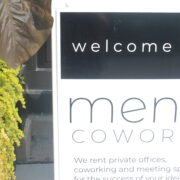Setting Goals for Success
Setting goals is an imperative part of the process of becoming successful. However, it is important to note that not all goals are created equal. Setting goals that will end in success is one of the most important things you can do in your career. How you set your goals is just as important as the goals themselves. These tips can help you re-evaluate your goal-setting process as well as get you on the fast track to success.
- Ask yourself why?
Ask yourself why you are setting this goal. Truly understand what you want to get out of it and why it matters so much to you. A common business goal is to make more money. Of course, everyone would probably want to make more money. Analyze why you want more money. Is it because you want all the things money can buy or because it will make you look better in the eyes of people you admire? Will more money make you feel more financially secure or to be recognized for the work you do?
- Believe in yourself.
Believe you can accomplish what you’re setting out to do. A lot of what holds us back from doing really amazing things in life is our mind. I know it is hard, but learn to silence the noise in your head telling you that you can’t accomplish your dreams. You can do anything you set your mind to!
- Visualize where you want to be.
This goes hand in hand with believing you can do whatever you set your mind to. Visualize yourself where you want to be in five, ten, twenty years. Where do you see yourself? Place yourself in the roles you want to be in. What does your life look like and what is required of you to get there? The clearer your visions are, the easier it is to accomplish them.
- Write them down.
For me, it helps to get anything big that is floating around in my head out and onto something more tangible, whether that is on an actual piece of paper or a word document on your laptop. Being able to visually see your goals rather than have them in and out of your brain will help you better stick to them.
- Get going.
You have to start somewhere. Start small and work up to your goals one day at a time. Build up from the small to medium, to large goals as time goes on. It is hard to understand the big picture when we’re focused on the meticulous details and vice versa, if we are only focused on the large scale, you can be left in the dust of your dreams. According to Forbes, “Knowing the ultimate goal, the middle steps, and the micro steps needed each day completes the picture.”
- Hold yourself accountable.
Every so often, go back to the goals you wrote down and hold yourself up to them. Have you been on track or are you slipping behind? Set a grade for yourself and then vow to get better if you feel as though you need to step it up. Reviewing your goals keep them fresh in your mind and allows you to re-assess them as time goes on. Maybe you have accomplished one and you can cross it off or your realize one needs to be reworked.
These tips will allow you to set attainable goals for yourself, and by practicing them, will help you achieve them successfully. I know it isn’t always easy and you may want to hang in the towel once in a while, but refer back to these tips and stay focused on the goals you have set. You will be amazed at what you can accomplish.














